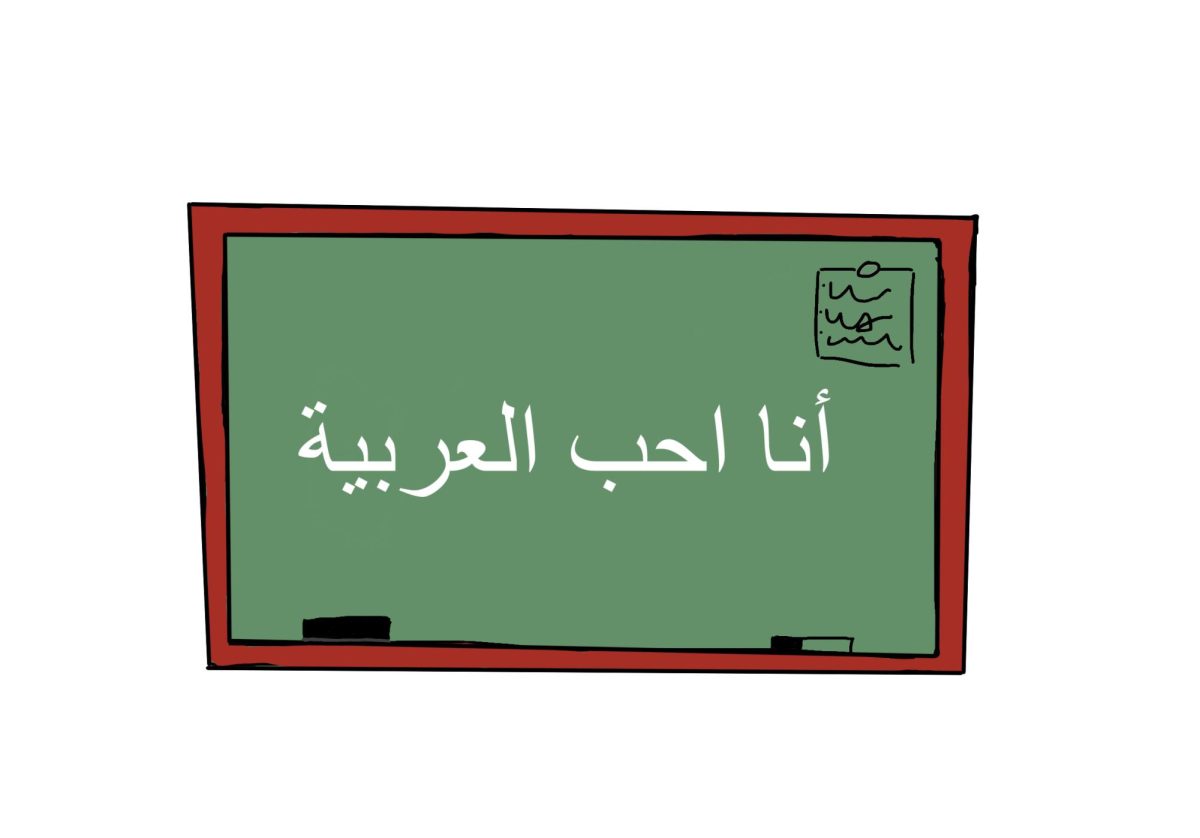The Hill School had one of the best high school Arabic programs for a while, and even Lawrenceville has never achieved that. For the past few years, though, the Arabic program has undergone multiple trials and tribulations.
“In the last five years, we have had fewer students taking the class. We have had to combine some classes and reduce the number of sections, to the point that we, sometimes combined different levels, not just like honors and non-honors,” Christopher DeLucia, Hebert B. Finnegan Memorial Chair of the World Language Department states. “I mean, of course, we had COVID online, and then we had another period where we had an online teacher for a short period of time after the founder of the program, Mr. Benson, left in 2021,” he continues.
As a result, the Arabic program has shrunk in the past years, and this has caused worries for both the language department and students taking Arabic. In fact, this year Hill did not accept any level one Arabic students, but the language department has a goal of restarting it next year.
The reason for the temporary cancellation of Arabic 1, as DeLucia describes, is because of the new teacher, Sharrie Saleh, Adjunct Instructor of Arabic of the World Language Department, is a part time teacher. “When we hire somebody part time, usually we have to limit them to two classes.”
Despite only being part time, there are three main reasons why Saleh chose Hill. “The first reason is my husband, of course. And for my second reason, my daughter was accepted here. So, I have two reasons, “Saleh mentioned. “And the third reason, and it is a very important one: the students and the staff. Everyone here is a kind of family. You never feel alone here. That is very important, especially for someone not from the US. They are just looking for a family. And here I feel I am with my family. And of course, the students, I love them,” she adds, “and I want to give them something. So, every Monday here in my class, I love to cook some traditional Egyptian food for my students.”
Sage Garraway ’26, a student in the Arabic 3 class, is hoping for a better year in Arabic despite the unpredictability she’s faced the past two years.
“There were a lot of different semesters of switching teachers, and my relationship with my one teacher that I had for one and a half to two years, was really good. And then, after that, we had a different teacher,” she shared. “Now, I have a new teacher, and I love her. So, hopefully, you know, it goes well for the next two years.”
Shinyu Zhang ’27, who is currently taking Arabic 2, shares the hope for a stable Arabic program. “I will probably try to keep learning Arabic until my senior year because I am really interested in taking Arabic,” Zhang said. “It would be pretty cool just to tell people that you know how to speak Arabic.”
As news of the cancellation of Arabic 1 for the 2024-2025 school year began to spread among the students taking Arabic, some became worried about a full fade out of the program. Chelsea Lee ’27, an Arabic 2 student, expressed her worry on the subject. “The school should not cut Arabic because it is such a unique language to offer. I heard Hill used to have more languages like German, but they removed it because of a lack of students. I understand it is hard to find teachers or even students who want to learn Arabic, but this is one of the only special parts of Hill.”
Saleh does not plan to let that happen. With new ideas, she hopes to expand her students’ love for Arabic. “I want to concentrate on putting more Egyptian vocabulary because it’s a common Arabic dialect in the Middle East. Everyone in the Middle East can understand Egyptian Arabic. Because it’s not difficult,” Saleh communicates. “I want the students to learn how to communicate with Arab people — how they can understand them. If one of these days, they go abroad or go to any country in the Middle East, they can understand them. They can go buy something by themselves. So, I want to achieve these goals.”
Hill has been working from multiple aspects and exploring all possible routes to boost the program. “I feel pretty confident though that this year will go well. But, you know, we need support from a lot of people. You know, administratively, in the community, in our marketing services,” DeLucia says, “Everybody has to be on board if we are going to be successful with it.”
Not only has the school made strides, but so have the students. Lee touched on her work outside of the classroom.
“I made the Arabic club to spread the language and culture because it is ‘dying’ at Hill,” Lee stated in a text. “One of the reasons is because I do not want the language to be removed. I hope more people will join, and hopefully they are interested.
DeLucia also describes all the possible scholarships and external programs available for language development which would hopefully encourage students to further their interest and study of the language. He referenced the National Security Language Initiative for Youth program, saying that it is “a program funded by the US government that allows students to study Chinese, Arabic, Korean, and several other languages which are considered critical languages.”
DeLucia dives deeper into the programs’ choices describing, “That is, not too many people are studying them, and geopolitically, they are very important.”
“We have to see how this year goes. So, this year is very much a year of not only concern but also of hope,” DeLucia concludes.

























